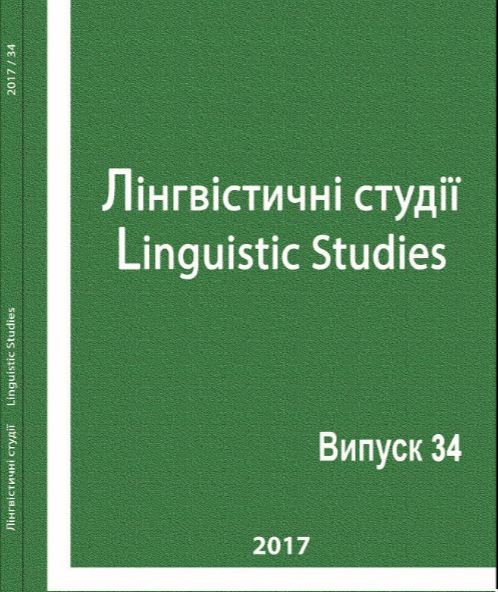The Function of the Russian Non-Prepositional Accusative in the Background of Historical Development.
Keywords:
simple accusative, case system of Russian, direct object, trensitive verba, predicative, historical development of RussianAbstract
Expression of a direct object of transitive verbs or predicates is a basic and primary function of the accusative. All other functions are adverbial and they are considered secondary. The accusative of a direct object is rooted in Indo-European language. Ancient Slavonic language and later individual Slavonic languages inherited a system of cases where the accusative had represented a function of a case of a direct object from Indo-European language. Using material from Russian language it is possible to emphasise specific peculiarities of the accusative functioning as an object. The accusative with this meaning is exemplified with numerous instances in Ancient Russian manuscripts. A direct object expressed with a simple accusative of transitive verbs describes most often an object which represents aim of the action. A range of verbs with which a non-prepositional accusative appeared to mark an object to which an action is aimed was much wider in Ancient Russian language. There were verbs conveying meaning of feelings, thinking and speaking in this group. These verbs could be also accompanied with a prepositional construction in Ancient Russian. Ancient Russian language did not strictly differentiate occurrences where the accusative expressed a direct object, on which an action of a subject was focused, and when it is an indirect object, on which an action of a subject is not focused but it was located in area of its interest. Contemporary Russian language distinguishes direct and indirect object. In Ancient Russian language a simple, non-prepositional accusative was used also in such instances where contemporary Russian language permits only constructions with a preposition.
Simple, non-prepositional accusative was also used in its adverbial sense for marking time and place in Ancient Russian language. It can be stated that Ancient Russian constructions of adverbial of place correspond more with the current state than constructions representing adverbial of time. Nevertheless, it is necessary to emphasise that using a non-prepositional accusative with semantics of place was limited in Ancient Russian language and those constructions were consequently replaced by constructions with prepositions.
References
Bauer, Jaroslav, and Roman Mrázek and Stanislav Žaža. Příruční mluvnice ruštiny pro Čechy II. Skladba (Handy grammar Russian for Czechs II. The Syntax). Praha: Státní pedagogické nakladatelství, 1979. Print.
Borkovskii, Viktor Ivanovich, and Petr Savvich Kuznetsov. Istoricheskaya grammatika russkogo yazyka (Historical Grammar of the Russian Language). Moskva, AN SSSR, 1963. Print.
Desnitskaya, Agniya Vasilievna. ―K voprosu o proiskhozhdenii vinitel´nogo padezha v indoevropeyskikh yazykakh (On the question of the origin of the accustaive in indo-european languages)―. Izvestiya Akademii nauk (seriya literatury i yazyka) 1947: 6, 493 499. Print.
Havránek, Bohuslav (ed.). Příruční mluvnice ruštiny pro Čechy I. Hláskosloví a tvarosloví (Handy grammar Russian for Czechs I. Phonology and morphology). Praha: Státní pedagogické nakladatelství, 1976. Print.
Isachenko, Aleksandr Vasilievich. Grammaticheskii stroi russkogo yazyka. Chast pervaya (Grammatical strukture of the Russian language. Part of the first). Bratislava: Slovenská akademie věd, 1956. Print.
Krys´ko, Vadim Borisovich. Istoricheskii sintaksis russkogo yazyka. Ob´´ekt i perekhodnost´ (An historical syntax of the Russian language. Object i transitoriness). Moskva: Izdatel´skii centr ―Azbukovnik―, 2006. Print.
Kuryłowicz, Jerzy. ―Le problème du classement cas (The problem of case classification)―. Biuletyn Polskiego Towarzyszstwa Językoznawczego IX (1949): 20 43. Print.
Lomtev, Timofei Petrovich. Iz istorii sintaksia russkogo yazyka (From the history of Russian language syntax). Moskva: Gosudarstvennoe pedagogicheskoe izdatel´stvo, 1954. Print.
Lomtev, Timofei Petrovich. Ocherki po istoricheskomu sintaksisu russkogo yazyka (Essays on the historical syntax of the Russian language). Moskva: Izdatel´stvo Moskovskogo universiteta, 1956. Print.
Mrázek, Roman, and Galina Vladimirovna Popova. Historický vývoj ruštiny (The historical development of Russian). Praha: Státní pedagogické nakladatelství, 1988. Print.
Obnorskii, Sergei Petrovich. Ocherki po istorii russkogo literaturnogo yazyka starshego perioda (Essays on the history of the Russian litarary language of the older period). Moskva Leningrad: AN SSSR, 1946. Print.
Shakhmatov, Aleksei Aleksandrovich. Sintaksis russkogo yazyka (The syntax of the Russian language). Leningrad: Gosudarstvennoe uchebno-pedagogicheskoe izdatel´stvo, 1941. Print.
Shvedova, Natalia Yulievna (ed.). Russkaya grammatika I II (Russian grammar I II). Moskva: Nauka, 1980. Print.
Shvedova, Natalia Yulievna, and Vladimir Vladimirovich Lopatin (ed.). Russkaya grammatika (Russian grammar). Moskva: Russkii yazyk, 1990. Print.
Stanisheva, Dina Sergeevna. ―Nekotorye voprosy istoricheskogo sintaksisa padezhey slavyanskikh yazykov (Some of the question the historical syntax of the falls Slavic languages)―. Slavistychen sbornik. 1. Ezikoznanie. Sofiya: Izdanie na B´´lgarskata Akademiya na naukite, 1958: 13 31. Print.
Stanisheva, Dina Sergeevna. Vinitel´nyi padezh v vostochnoslavyanskikh yazykakh (Accusative in Eastern Slavic languages). Sofiya: Izdatel´stvo Bolgarskoi Akademii nauk, 1966. Print.
Vinogradov, Viktor Vladimirovich. Russkii yazyk. Grammaticheskoe uchenie o slove (The Russian language. Grammar teaching of the word). Moskva: Vysshaya shkola, 1972. Print.
Yakobson, Roman. ―Beitrag zur allgemeinen Kasuslehre (Contribution to the general case teaching)―. Travaux le cercle linguistique de Prague 6 (1936): 240 288. Print.
Yanovich, Elena Ivanovna. Istoricheskaya grammatika russkogo yazyka (Historical grammar of the Russian language). Minsk: Izdatel´stvo Universitetskoe, 1986. Print.
Žaža, Stanislav. ―Der adverbiale Akkusativ im Griechishen, Lateinische und Altrussischen (The adverbial accusative in Greek, Latin and old Russian)―. Early european languagesinthe eyes of modern linguistics. Brno: Masaryk University, 2009. 359 367. Print.


